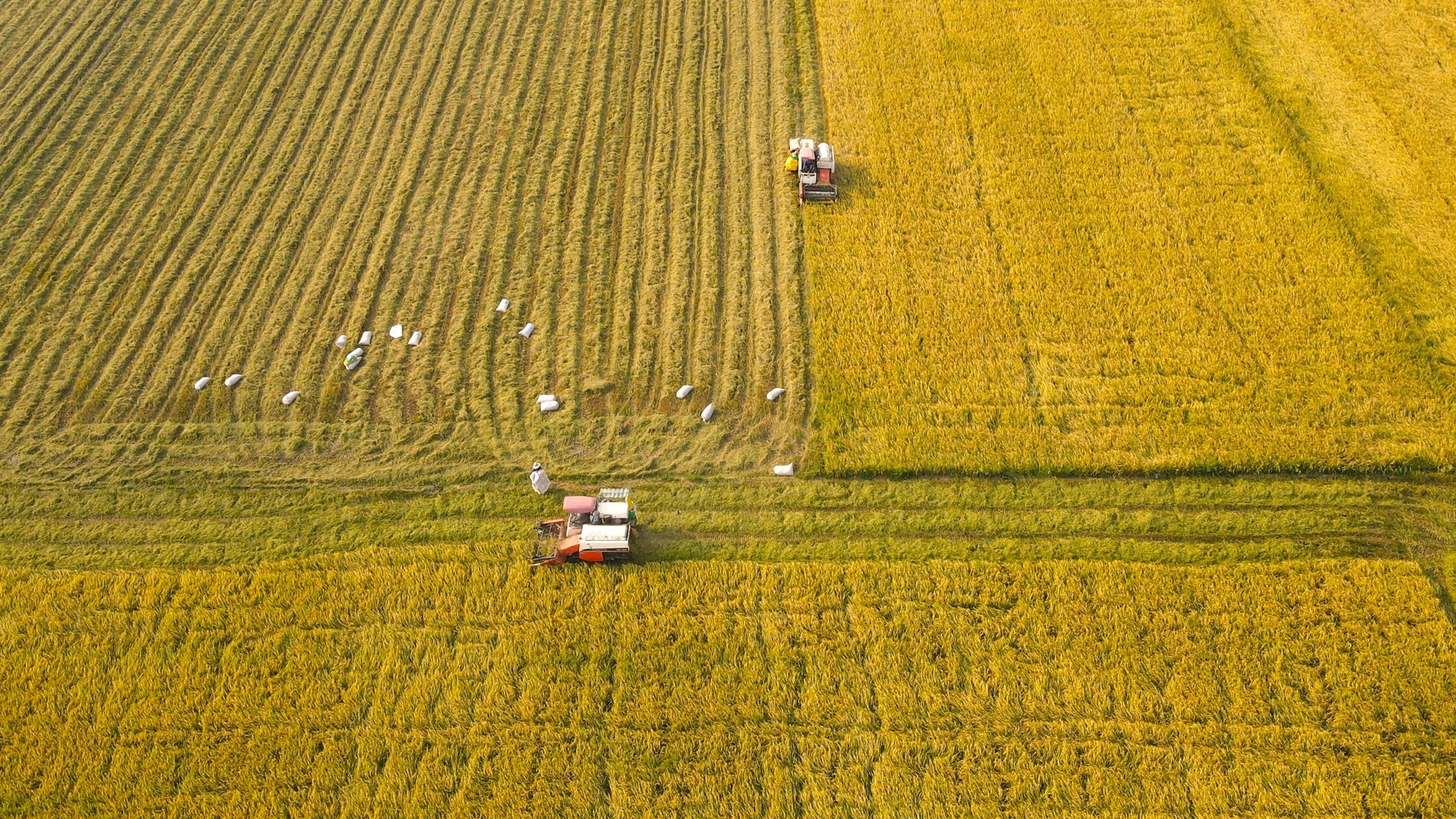The alternating wet and dry (AWD) irrigation method is gaining popularity in rice-growing areas of the Mekong Delta, particularly in the last one to two years, with support from various businesses and organizations. Scientists estimate that applying this method across the entire 1.8 million hectares of rice paddies in the Mekong Delta could save 7,400 billion VND, reduce water usage by 2.4 billion cubic meters, and decrease greenhouse gas emissions by 13.86 million tons.
This new model requires a lower seeding density of about 60-70 kg/ha, a significant reduction compared to the traditional method of over 200 kg/ha. The irrigation formula also changes from continuous flooding to alternating wet and dry periods. Each season requires only 5-6 irrigations, with water levels not exceeding 3 cm.
According to scientists, with the traditional method, continuous flooding prevents oxygen from entering the soil, creating conditions for bacteria to produce methane, which accounts for up to 75% of agricultural emissions. Methane's ability to trap solar radiation is 25 times greater than that of CO2 over 100 years. Scientists estimate it causes at least one-fourth of current global warming.
Scientists have verified that the new method allows oxygen to penetrate deeper into the soil, strengthening rice roots and improving disease resistance. Implementation across 540 ha in An Giang showed a 9% increase in rice yields, a 31% increase in income, and a profit increase of about 7 million VND/ha compared to the old method. Methane emissions were reduced by 19-31%.
 |
Rice fields during harvest season in the Mekong Delta. Photo: Tran Thanh |
Rice fields during harvest season in the Mekong Delta. Photo: Tran Thanh
Many businesses are now supporting this method and encouraging farmers to adopt it. For example, Coca-Cola recently partnered with several organizations to support 42 farmers in Long An in transitioning to this technique on 50 ha of rice fields from April to August/2025.
To enhance effectiveness, maximum residue limit (MRL) management procedures are also being advised and implemented to control pesticide residues within permitted limits. Alongside AWD, farmers are reducing seasonal costs by 20-30%, lowering emissions, and improving agricultural product quality. According to the unit, this agricultural method helps build a sustainable rice value chain, improving farmers' livelihoods by reducing input costs and increasing rice selling prices.
Along with AWD, farmers in the Mekong Delta are implementing various farming methods to realize the government's plan for one million hectares of high-tech, low-emission rice cultivation. Machinery is gradually replacing manual labor. Fertilization and spraying processes are also reduced compared to traditional methods.
Le Van Huu's family in Tay Ninh province is implementing this model on 3 ha. In addition to AWD, he uses drones for spraying instead of hiring laborers. Drone spraying is precise and adequate, limiting chemical residue. Post-harvest rice straw is no longer burned but is purchased by businesses for animal feed and mushroom cultivation.
According to Huu, production costs per season have decreased by over 30%, while profits have reached about 75 million VND per season, an increase of nearly 20 million VND.
Professor Nguyen Bao Ve, former head of the Agriculture Department at Can Tho University, who has been involved in implementing similar models in several Mekong Delta provinces, believes that low-emission rice farming is a solution for farmers after a long cycle of increasingly harsh natural conditions leading to reduced yields, increased fertilizer and water use, and increased greenhouse gas emissions.
However, the expert suggests this model is only successful when implemented on a large scale using high technology, requiring investments of billions of VND, and is not suitable for small, fragmented fields. Farmers can join cooperatives to implement it. He also suggests businesses can participate with farmers, taking responsibility from production to trade, with farmers contributing land use rights as shareholders.
Hoai Phuong












